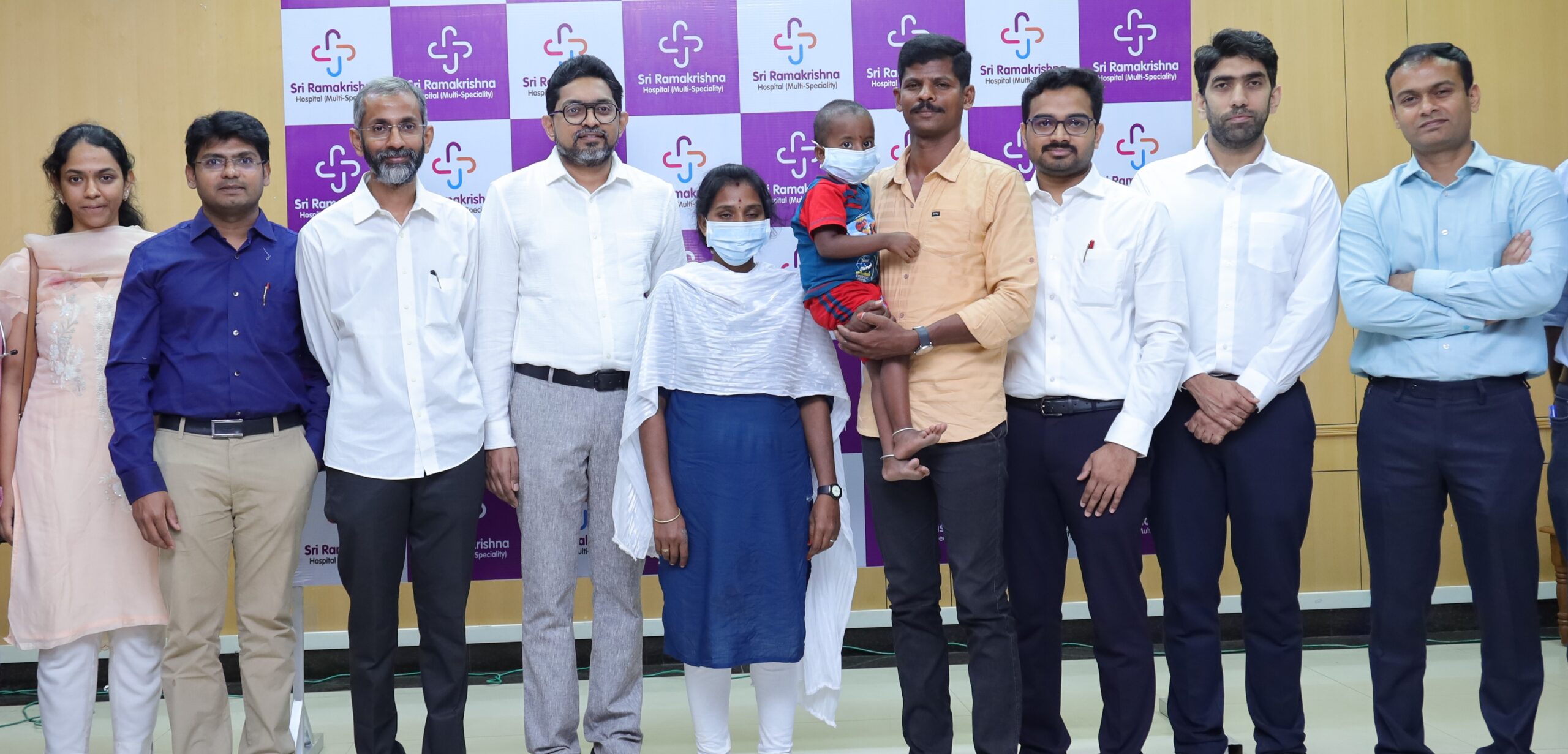Trending Now
- 830 voters names go missing in Kavundampalayam constituency
- If BJP comes to power we shall consider bringing back electoral bonds: Nirmala Sitaraman
- Monitoring at check posts between Kerala and TN intensified as bird flu gets virulent in Kerala
Coimbatore
A lifeline for paediatric cancer patients
![]() June 21, 2016
June 21, 2016
Coimbatore’s Sri Ramakrishna Institute of Oncology and Research at Sri Ramakrishna Hospital, has been a lifeline for child cancer patients, 500 of who have been treated free in the last 10 years.
A trust instituted in 2005 shoulders the entire cost of treatment of the children, who come from poor families.
“Out of the 500 children, 78 per cent have been cured,” says Dr P Guhan, director and chief oncologist of the institute.
The disease occurs in less than two per cent of the children in India and of which 85 per cent is blood cancer, says Dr Guhan.
Some of the others are cancer of the muscle, tumour of the kidney and brain, and leukaemia.
Dr Guhan, who is into 20 years of treatment and research of cancer, says the institute handles about 50 to 60 patients every year.
“We treat poor children at the charity paediatric ward set up with the help of a corpus fund donated by a cancer survivor, and from food to medicine, everything is completely free of charge.”
Dr Guhan says the ward can accommodate just 15 patients, but it always overflows as I have refused none. “It gets tough financially too, but we manage.”
He said his team has the full support of the hospital management and thanked them for supporting this mission.
“We would like to see increased corporate social responsibility to continue our service. In Mumbai and Bangalore, help from this quarter is in abundance, and would like to see such benevolence in Coimbatore as well.”
The ward, which always overflows, was set up with the help of a corpus fund donated by a cancer survivor.
Paediatric cancer patients have been our teachers,” says the doctor.
Longtime survivors who were treated for cancer as children, have now helped doctors understand the complications that developed into toxicity in the heart, impotence, growth retardation and other secondary complications due to chemotherapy and radiation.
“We were able to modify the dosage of medicine or the frequency of chemotherapy or radiation and systematically assess future treatment and maintain its efficacy,” Dr Guhan says.
To achieve this, the hospital’s collaborative study groups have tailored the treatment to increase safety and efficiency.
For instance, the duration of chemotherapy has been reduced from one and a half years to eight to 24 weeks between 1970 and 2000, with experience and case studies, he said.
Children who approach the hospital in an advanced stage of cancer are treated for just pain relief and to improve the quality of their lives, Dr Guhan said.
Periodic absence from schools is part of a paediatric cancer patient’s life. “They are treated compassionately by schools, which co-operate with the hospital,” said Dr Guhan.
Routine check-ups can help detect cancer early paving the way for a complete cure, said the doctor.
Some are genetically-predisposed to cancer, but lifestyle modification and a balanced diet can go a long way in keeping people healthy.
“Everyone must say no to tobacco, cigarettes and limit junk food to ensure a healthy life,” Dr Guhan said.
Project Deepam (Detect Early Ensure Prevention and Management) established in 2005 is part of the institute’s mission to detect cancer and to ensure prevention and management.
More than two lakh women in rural areas have been provided free screening for cervical and breast cancer in the last 11 years, which according to Dr Guhan is the highest ever recorded in India.























